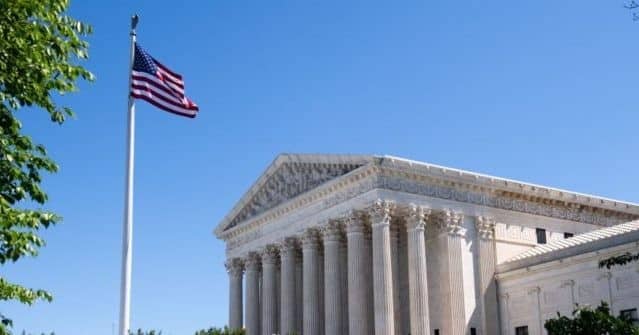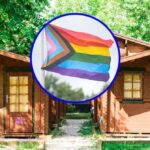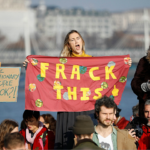The U.S. Supreme Court ruled in a 5-4 decision late Friday that California must lift its coronavirus pandemic restrictions on in-home religious gatherings and prayer meetings.
The petitioners are a pastor and group of worshipers who hold services in their home because of coronavirus restrictions. They asked for an injunction reversing the lower federal courts and blocking California Gov. Gavin Newsom while this case is on appeal.
Earlier in 2020, faith leaders protested Newsom’s lockdowns on indoor worship. Later in the year, Newsom ignored a Supreme Court order and doubled down on his lockdowns regarding indoor religious gatherings.
The lower courts, including the Ninth Circuit, ruled against these home-church worshipers. According to the court majority, this is “the fifth time the Court has summarily rejected the Ninth Circuit’s analysis of California’s coronavirus restrictions on religious exercise.”
In an order from the court, the five conservative justices on the court voted to grant the injunction. Chief Justice John Roberts sided with the three liberals on the court to deny the injunction sought by the church.
In this opinion, no single justice is credited as the author, so it is a per curiam opinion.
The court majority explained its ruling under the following terms:
First, government regulations are not neutral and generally applicable, and therefore trigger strict scrutiny under the Free Exercise Clause, whenever they treat any comparable secular activity more favorably than religious exercise.
It is no answer that a State treats some comparable secular businesses or other activities as poorly as or even less favorably than the religious exercise at issue.
Second, whether two activities are comparable for purposes of the Free Exercise Clause must be judged against the asserted government interest that justifies the regulation at issue.
Comparability is concerned with the risks various activities pose, not the reasons why people gather.
Where the government permits other activities to proceed with precautions, it must show that the religious exercise at issue is more dangerous than those activities even when the same precautions are applied. Otherwise, precautions that suffice for other activities suffice for religious exercise too.
California treats some comparable secular activities more favorably than at-home religious exercise, permitting hair salons, retail stores, personal care services, movie theaters, private suites at sporting events and concerts, and indoor restaurants to bring together more than three households at a time.
The State cannot assume the worst when people go to worship but assume the best when people go to work.
The application is Tandon v. Newsom, No. 20A151 in the Supreme Court of the United States.






